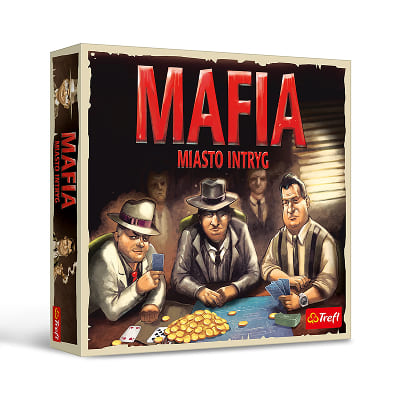
What’s This Game All About?
Mafia is a classic social deduction game built around deception, storytelling, and group intuition. One team — the Mafia — works in secret to eliminate other players, while the rest of the group, known as the Town, must figure out who they are before it’s too late. What makes the game truly special is that everything happens through speech, body language, and group voting.
There are no boards, cards, or equipment needed. Just people, roles, and enough trust to lie convincingly. With a moderator guiding the action, each round unfolds in two phases: night (when Mafia act in secret) and day (when everyone debates and votes on who they think is suspicious). It’s an experience full of twists, surprises, and dramatic reveals.
Perfect for parties, classrooms, camps, and team events, Mafia is easy to learn but endlessly replayable. It encourages communication, creative thinking, and a healthy dose of bold play. No two games are ever the same — and that’s exactly the point.
How to Play
- Set the roles. A moderator assigns secret roles to each player: typically 2–3 Mafia members, 1 Doctor, 1 Detective, and the rest as Townspeople. Only the moderator knows who’s who.
- Begin the night phase. Everyone closes their eyes. The moderator asks Mafia to open their eyes and silently agree on a player to eliminate. The Doctor then picks someone to save. The Detective chooses someone to investigate.
- Move to the day phase. Everyone opens their eyes. The moderator announces who was eliminated (unless saved by the Doctor). The group discusses who they think the Mafia are based on behavior or suspicions.
- Hold a vote. Players nominate someone to “put on trial.” The group votes to either eliminate them or let them stay. Then the next night phase begins.
- Continue until one team wins. If all Mafia are eliminated, the Town wins. If the Mafia outnumber the Town, the Mafia wins.
Mafia scales well for 6–20+ players. Adjust roles based on group size, and always have a confident, neutral moderator to keep things moving.
Tips & Smart Variations
- Use a timer during discussion. Give players 3–5 minutes per day phase to discuss and debate. It adds urgency and prevents endless looping conversations.
- Don’t reveal roles after elimination. For a more intense game, keep players guessing by not revealing eliminated roles. This adds mystery and tension.
- Encourage light roleplay. Give players “character prompts” (e.g., “You’re a baker who doesn’t trust politicians”) to make discussion more fun and less serious.
- Start with no special roles. For first-time groups, just assign Mafia and Townspeople. Add Doctor and Detective in later rounds once everyone gets the basics.
- Use a central narrator voice. As moderator, tell the story of what’s happening. A little dramatic flair makes the game more memorable and helps players stay engaged.
- Encourage respectful suspicion. Remind players not to take accusations personally. It’s part of the game — not a reflection of real friendships or trust.
Best For...
- Groups of 7 to 20+ players who enjoy speaking, bluffing, and analyzing social behavior. The more players, the more exciting it becomes.
- Teen and adult parties where people are open to some light-hearted suspicion, drama, and deduction.
- Classrooms, clubs, or team-building sessions where group interaction, leadership, and communication are encouraged.
- Evenings with minimal setup time — since Mafia only requires role slips and a moderator, it’s easy to start almost anywhere.
- Groups looking to laugh, argue, and guess together — especially those who enjoy improvisation, storytelling, or creative tension.
Want Help Running Your First Mafia Game?
Whether you're hosting your first party or introducing the game to students, we’re happy to help you prepare. We can offer advice on role selection, group pacing, and even printable role templates.
